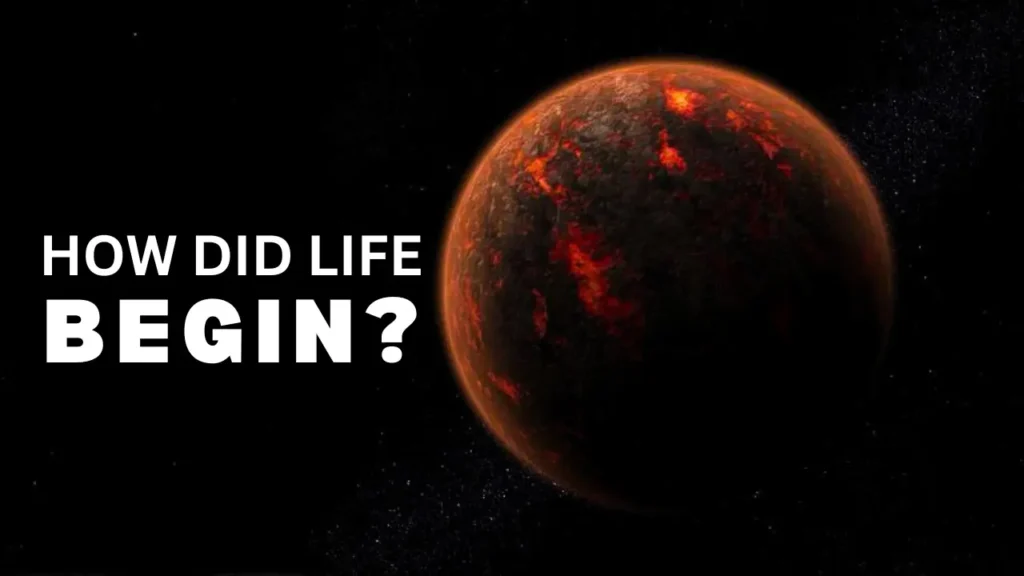
The inquiry into the origins of life stands as one of the most profound and debated topics in the realm of science. Despite numerous theories, a unanimous consensus among scientists remains elusive. The quest to unravel life’s inception not only fuels scientific curiosity but also holds the potential to redefine our understanding of our place in the vast universe and guide the exploration of extraterrestrial life.
Primordial Soup Hypothesis: A Glimpse into the Past
The “primordial soup” hypothesis gained prominence in the early stages of scientific exploration. This concept suggests that the Earth’s young oceans harbored essential chemical compounds that would spontaneously form simple living cells. Originating in the 1920s, independently proposed by Alexander Oparin in the USSR and J. B. S. Haldane in Britain, this idea was supported in Stanley Miller’s 1953 experiment. Miller’s groundbreaking work demonstrated that the chemicals of life could naturally assemble, producing amino acids—the building blocks of proteins.
However, the journey from simple chemicals to life proved more intricate than Miller’s experiment implied. Today, scientists grapple with competing hypotheses, disagreeing on the sequential emergence of life’s chemical components, processes, and the geographical location of life’s origin on Earth.
Timing and Location Mysteries
The timing of life’s origin remains uncertain, with the only certainty being its occurrence between Earth’s formation 4.5 billion years ago and the appearance of the oldest confirmed fossils 3.4 billion years ago. Attempts to narrow this window by identifying older traces of life face dispute among paleontologists.
Regarding the location of life’s inception, the debate continues. While some favor the sea, others propose alkaline vents on the sea floor or land-based environments like geothermal pools. A minority supports the idea of “panspermia,” positing that life originated elsewhere in the universe and reached Earth. Yet, most researchers find this notion unlikely, considering the absence of extraterrestrial life discoveries.
Unraveling the Mechanism: The Enigma of Life’s Creation
The most challenging question in pursuing life’s origins centers on the mechanism that initiated life. Initial theories like Sidney Fox’s proteins-first hypothesis have waned in popularity. The RNA World hypothesis has garnered substantial support, proposing that life began with RNA before evolving to include DNA and proteins. However, recent perspectives suggest that RNA’s potential may be realized with proteins.
Alternatively, some hypothesize that the first life forms were simple protocells, acting as containers for life’s components. Nobel laureate Jack Szostak’s advanced protocells even involved self-replicating RNA. Another viewpoint, the “metabolism-first” idea, suggests life originated through chemical reactions extracting energy from the environment. Günter Wächtershäuser’s Iron-Sulphur World has evolved into Michael Russell’s theory of life by electrically charged protons within alkaline vents.
While certainty eludes us, laboratory efforts to create life from chemicals offer a potential avenue to discern which proposed mechanisms are viable.
READ MORE: What Causes Waves in the Ocean?
How did life begin on Earth?
The origin of life on Earth remains one of the most profound mysteries in science. Various theories exist, but a universally accepted answer is yet to be determined. Scientists explore hypotheses such as the “primordial soup,” where simple chemicals in the early oceans led to the formation of essential living cells, and the “RNA World,” suggesting life began with RNA before evolving to DNA and proteins.
What started the life?
The exact trigger for the origin of life is unknown. Scientists propose different mechanisms, including the idea that combining chemical reactions in the Earth’s early environment led to forming the first living entities. The search for the precise catalyst for life’s inception continues to be a subject of intense scientific investigation.
How did human life begin?
The origin of human life is intricately tied to the broader question of the origin of all life. According to evolutionary biology, humans share a common ancestry with other life forms, and the evolution of Homo sapiens took place over millions of years through processes such as natural selection. Studying human origins involves examining fossil records, genetics, and other scientific disciplines.
How did the first living thing form?
The emergence of the first living thing, or the common ancestor of all life, is a topic of speculation and ongoing research. Theories range from forming simple molecules in a “primordial soup” scenario to the concept of an “RNA World,” where RNA played a central role in early life. The exact process by which the first living entity formed is a complex puzzle that scientists work to unravel through experimental studies and theoretical models.